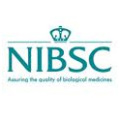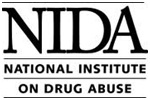Our current and past institutional research partners include:
American Red Cross
Rockville, Maryland
The American Red Cross is the USA’s premier emergency response organization. The American Red Cross aids victims of devastating natural disasters at home and abroad. The American Red Cross also offers community services for the needy; support for military members; the collection, processing, and distribution of blood and blood products; health and safety educational programs; and international relief.

Armed Forces Institute of Pathology
Department of Defense, Washington, D.C.
The Armed Forces Institute of Pathology (AFIP) was a US government institution concerned with diagnostic consultation, education and research in the medical specialty of pathology. It primarily provided second-opinion diagnostic consultations on pathologic specimens such as biopsies from military, veteran and civilian medical, dental and veterinary sources. It was disbanded in 2011.
Defence Science and Technology Laboratory (Dstl)
British Ministry of Defence, United Kingdom
The Defence Science and Technology Laboratory’s stated purpose is “to maximize the impact of science and technology for the defense and security of the UK.” Dstl carries out a broad range of work from high-level analysis to support Ministry of Defence policy and procurement decisions, to technical research in defense areas such as biomedical science and electronics.
Food and Drug Administration
Bethesda, MD
The Food and Drug Administration (FDA) is responsible for protecting and promoting public health through the regulation and supervision of food safety, tobacco products, dietary supplements, prescription and OTC pharmaceuticals, vaccines, biopharmaceuticals, blood transfusions, medical devices, electromagnetic radiation emitting devices (ERED), veterinary products and cosmetics.
Hospital Universitario Ramón y Cajal
Madrid, Spain
The Hospital Universitario Ramón y Cajal is a public center under the Ministry of Health and Community of Madrid. This health center focuses on Care, Teaching and Investigational Research. It is recognized nationally and internationally as a leader in biomedical research.
National Cancer Institute
Bethesda, MD
The National Cancer Institute’s main responsibilities include coordinating the National Cancer Program; conducting and supporting cancer research; training physicians and scientists; and disseminating information about cancer detection, diagnosis, treatment, prevention, control, palliative care, and survivorship.
National Center for Complementary and Alternative Medicine
Bethesda, MD
The National Center for Complementary and Alternative Medicine (NCCAM) is the US government’s lead agency for scientific research on complementary and alternative medicine (CAM). The mission of NCCAM is to define, through rigorous scientific investigation, the usefulness and safety of complementary and alternative medicine interventions and their roles in improving health and health care.
National Heart, Blood and Lung Institute
Bethesda, MD
The National Heart, Lung, and Blood Institute (NHLBI) provides global leadership for a research, training and education program to promote the prevention and treatment of heart, lung and blood diseases and enhance the health of all individuals so that they can live longer and more fulfilling lives.
National Institute for Biological Standards and Control
London, England
The National Institute for Biological Standards and Control (NIBSC) is responsible for developing and producing over 90% of the biological international standards in use around the world. The Institute tests biological medicines within the framework of the European Union. It is also the UK’s main research center in the field of pandemic flu.
National Institute of Allergy and Infectious Diseases
Bethesda, MD
NIAID’s mission is to conduct basic and applied research to better understand, treat and prevent infectious, immunologic and allergic diseases. For more than 60 years, NIAID research has led to new therapies, vaccines, diagnostic tests and other technologies that have improved the health of millions of people in the US and around the world.
National Institute of Dental and Craniofacial Research
Bethesda, MD
The mission of the National Institute of Dental and Craniofacial Research (NIDCR) is to improve oral, dental and craniofacial health through research, research training and the dissemination of health information.
National Institute of General Medical Sciences
Bethesda, MD
The National Institute of General Medical Sciences (NIGMS) supports research that increases understanding of life processes and lays the foundation for advances in disease diagnosis, treatment, and prevention.
National Institute of Standards and Technology
U.S. Department of Commerce, Washington, D.C.
Founded in 1901, NIST is one of the nation’s oldest physical science laboratories. NIST’s mission is to promote US innovation and industrial competitiveness by advancing measurement science, standards, and technology in ways that enhance economic security and improve quality of life.
National Institute on Aging
Bethesda, MD
The National Institute on Aging (NIA) is a division of the US National Institutes of Health (NIH). NIA leads a broad scientific effort to understand the nature of aging and to extend the healthy, active years of life. NIA’s mission is to improve the health and well-being of older Americans.
National Institute on Drug Abuse
Bethesda, MD
NIDA’s mission is to lead the USA in bringing the power of science to bear on drug abuse and addiction by strategically supporting and conducting research across a broad range of disciplines, and by ensuring the rapid and effective dissemination and use of the results of that research to significantly improve prevention and treatment and to inform policy as it relates to drug abuse and addiction.
National Science Foundation
Arlington, VA
The National Science Foundation (NSF) supports fundamental research and education in all the non-medical fields of science and engineering. The NSF funds approximately 20% of all federally supported basic research conducted by US colleges and universities. In some fields, such as mathematics, computer science, economics, and the social sciences, the NSF is the major source of federal backing.
SAIC-Frederick, Inc.
Frederick, MD
SAIC-Frederick, Inc. develops and applies advanced technologies to accelerate the delivery of new treatments to patients with cancer and AIDS. The company is a wholly-owned subsidiary of Science Applications International Corporation (SAIC) and operates exclusively under a single, long-term contract to the National Cancer Institute, part of the US National Institutes of Health. SAIC-Frederick conducts basic and applied research in cancer and AIDS, and maintains a full suite of advanced technologies in areas such as nanotechnology, genomics, and biomedical imaging.
United States Army Medical Research Institute of Infectious Diseases
Fort Detrick, MD
The US Army Medical Research Institute of Infectious Diseases (USAMRIID) is the US Army’s main institution and facility for defensive research into countermeasures against biological warfare. By US Department of Defense (DoD) directive, as well as additional US Army guidance, USAMRIID performs its “biological agent medical defense” research in support of the needs of the three military services.
United States Department of the Navy, Department of Defense
Washington, D.C.
The mission of the Department of the Navy is to maintain, train and equip combat-ready Naval forces capable of winning wars, deterring aggression and maintaining freedom of the seas.















